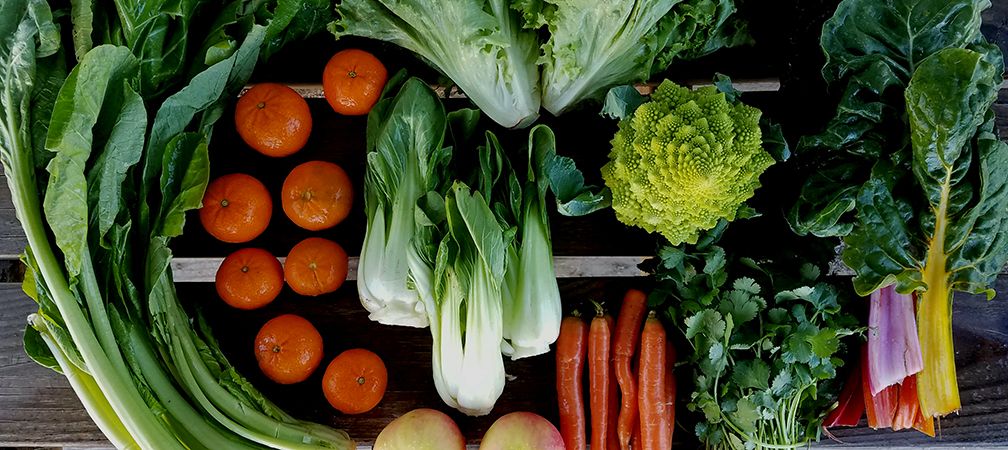Ontario Nature Blog
Receive email alerts about breaking conservation
and environmental news.
© Lora Denis
Organic produce © warutledge CC BY-NC 2.0
Our planet’s natural environment is under unprecedented stress. The good news is that you can help restore a healthy planet by reducing your environmental footprint, and we’re here to help you. This blog is part of a series that will help you go #GreenStepByStep. Subscribe to our blog to follow along!
If you’re looking to be creative in the kitchen while minimizing food waste, “scrappy cooking” is an excellent solution. According to a 2019 study conducted by Environment and Climate Change Canada, the average Canadian wastes 79 kilograms of household food every year. Wasting food wastes all the resources that it takes to grow, produce and distribute those foods.
We’ve all been there, whether it was a spring mix that sat a little too long in the back of your fridge or fruit that didn’t taste quite right. Even if food isn’t in pristine condition, there are always ways to salvage or prevent it from going bad. Food that is tossed usually ends up in landfills, where it decomposes and creates methane, a powerful greenhouse gas. If food waste were a country, it would be the third largest emitter of greenhouse gases. Therefore, reducing food waste will also reduce greenhouse gas emissions.

Here are five tips that can help you become more sustainable in the kitchen:
Another way that could help you prevent food waste at home is knowing the difference between “expiry date” and “best before date.” Second Harvest has an excellent chart you could print and attach to your fridge to remember which foods are safe to eat past their best before date.
When food goes from farm to table and is wasted, it contributes to Canada’s greenhouse gas emissions. Canada’s 2.3 million tonnes of avoidable household food waste is equivalent to 6.9 million tonnes of CO2 and more than 2 million cars on the road.
Landfills pose a risk to biodiversity as they can contaminate air and water. Composting is better than sending food waste to the landfill, but not everyone has access to composting facilities in their communities, so preventing food waste in the first place lessens the impact on the environment.

To learn more about ways we could help eliminate food waste, check out this video from National Geographic Emerging Explorer Tristram Stuart:
Reducing food waste is an excellent way to decrease our environmental footprint. Are there other recipes that you would like to share? Please tell us in the comments section!

Proposed 413 Route, Old School Road with farm and escarpment view © Noah Cole
Great info! Thanks